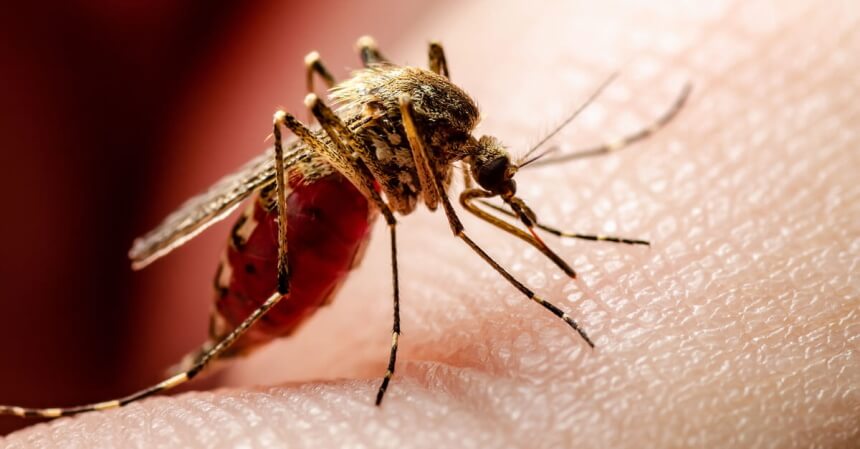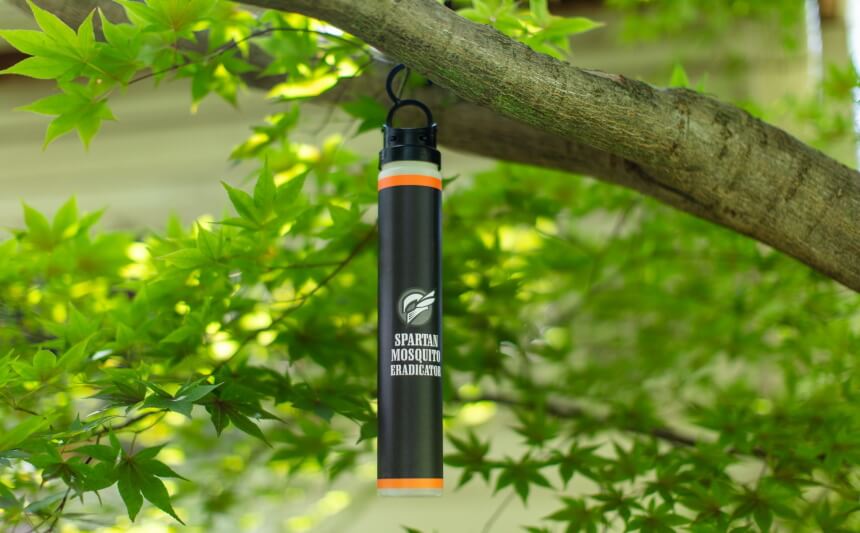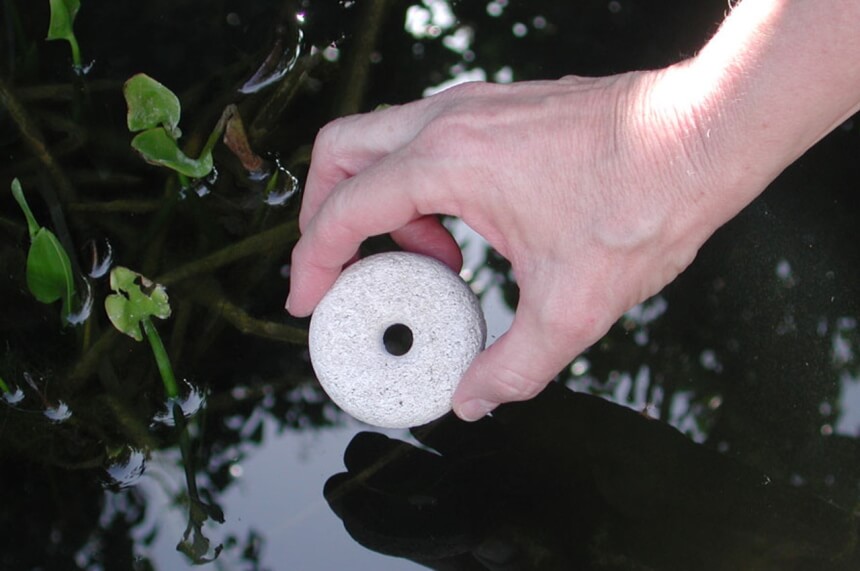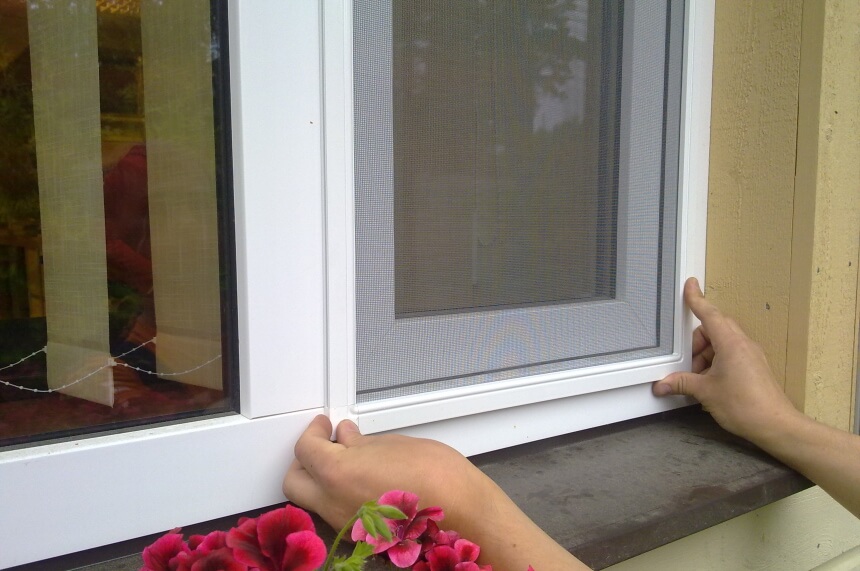

Have you ever found yourself wondering how high can mosquitoes fly? Perhaps you were planning to escape or just wondering if they could fly high in the mountains. There are several rumors and myths out there that go into more detail on this subject.
But what is the truth behind it and how high do they really fly? These buggers can fly exceptionally high when they want to and even travel long distances. You just might be surprised that they’ve been found well above 8,000 feet over sea level.
Of course, there are also certain levels where they seem to be most comfortable in flight. Keep reading to learn more about this!

Those myths we mentioned just a moment ago state that mosquitoes don’t fly higher than 25 feet. This statement does have a little bit of truth to it but it’s not the full story. What it should say is that this is the preferred height limit for most mosquitoes.
They can fly to extreme heights that you would never even dream possible overall but they simply do not like to unless they have to.
That being said, many mosquitoes will nest much higher as it makes their nests and homes far safer than if they were to do so at lower levels. As far as searching for food (humans) and just hanging out or flying around, they typically stick to 25 feet or under.
Protect yourself from these hungry buzzing pests by making sure you have effective protection from the best propane mosquito traps around you.
Different species of mosquitoes have different habits. One known mosquito that can cause dengue fever is the dengue mosquito.
This particular mosquito is known for flying higher than most. Studies have shown that they fly up to approximately 437 yards in the air. This is about .25 miles to give you some perspective. That being said, they still tend to stay at 25 feet or lower because they seek humans.
Dengue mosquitoes look for water space. They prefer warmth and stagnant water so this is their most likely location. The warm waters are where these mosquitoes nest and lay eggs as well.
Malaria is yet another disease that comes from mosquitoes and it can be fatal. Malaria is most often spread by female mosquitoes that have been infected. It’s impossible to know if you come across a malaria mosquito until they bite you and you potentially contract the parasite.
The mosquitoes that carry malaria fly much lower than dengue mosquitoes, sticking to more like 315 yards and under. These mosquitoes also travel major distances of travel so they can be anywhere. They often ride with the wind.
These mosquitoes can quickly move from one state or country to another and you would never know where they have been or what they picked up along the way. This is what makes them capable of spreading malaria to vast distances.
Perhaps you live in a high-rise apartment building on the 30th floor and you think you’re safe because you’re above 25 feet. That could be true in some cases but mosquitoes are looking out for number one. That number one is their source of food – which is you.
Even people who live or stay on high floors can benefit from the best indoor mosquito killers mosquito protection like various lanterns and mosquito killers.
If you’re on a high floor and that mosquito wants to come and find you, they certainly have the ability to. They prefer to stay lower but it doesn’t mean that being high keeps you completely safe from them.
You can help prevent or deter them in several ways. Don’t leave out stagnant water as this attracts them. You might also put out a catcher or even some mosquito spray if you have balcony access.

Mosquitoes can travel massive distances and they have no problem doing so. Some mosquitoes travel with the wind, taking them miles upon miles in a single day. They travel around a lot and despite where their eggs or nests are, they keep moving.
The best way to protect your home or location from mosquitoes is to use a repellent or even a spray to keep them away. One common choice is this Spartan mosquito pro tech for outdoors. It can be hung up outside and keep a full acre clear.
Mosquitoes will fly vast distances but most of the time they only travel about 50 miles at a time. If you’re looking for a good example of 50 miles, there are at least 15 cities within 50 miles of Dallas, Texas. That gives mosquitoes in that area a broad range of locations to choose from.
The best way to describe the height at which there are no mosquitoes is to consider the overall altitude. Most studies show that mosquitoes will remain under 8,000 feet above sea level. It’s possible for some to make it higher but they rarely do.
Mosquitoes prefer heat and moisture so when they fly this high there is typically never warmth. There is also far less oxygen and far fewer food sources. You certainly won’t find them at the top of Mount Everest.
In fact, while you can see mosquitoes on some mountains, they will be low and rarely at the peaks or high in the mountain areas.
You don’t have to just suffer through mosquitoes and doing so might actually be dangerous for you. Remember that they can carry parasites, diseases, and illnesses. It’s simply not worth the risk.
Here are a few common ways to help you combat mosquitoes and keep your home safe from them.

Repellents are a short-term solution for keeping mosquitoes away from you at a set time and place. However, there are also the best mosquito killers and treatments that you can use around you to help repel them too.
The goal of repellents is to help keep a person or a space clear and free from mosquitoes. There are several different types of repellents out there. Whether you use a repellent spray on your body or you hang up a lantern or repellent tube, you have options.
The goal is to deter mosquitoes from coming near in some way and these products are designed to do exactly that when you use them right.

Keeping your grass and any type of shrubs or trees and greenery trimmed will go a long way to reducing mosquitoes. They often nest in trees and bushes as a safe space but if they are trimmed up, the mosquitoes are less likely to make their homes there.
Mosquitoes don’t only feed on human blood but also enjoy sweet plants, nectars, and juices. They use these during the daytime a lot. Trim things up to help maintain them and scare the mosquitoes away.
Once things are trimmed up, you can make a soapy water mixture and spray it over your plants, flowers, and shrubs. This is a simple mixture with a little dish soap and water mixed together. Use a spray bottle and just spritz shrubs and flowers close to the home.

Stagnant water provides a literally breeding ground for mosquitoes. They thrive in these areas and are heavily attracted to them. You can be proactive by making sure you don’t have stagnant water sources anywhere nearby to give them a home or place to lay eggs.
If you notice stagnant water, get rid of it. Try to avoid leaving things that could allow for stagnant water and do your best to get rid of it when it does happen.
Another solution that is simple to use is these Mosquito Dunks that are highly recommended. You can put them in stagnant water or in places that tend to get mosquitoes like tires, flower pots, and gutters.
These help to get rid of mosquitoes, babies, and their eggs so that you don’t have to worry about them being around you and your home. No spraying harsh chemicals or relying on lanterns to keep them at the bay!

Mosquitoes can be sneaky. Try to keep them out of your hair by making sure they have no entryway. The challenge to this is that you can’t hide inside forever. When you are home, make sure all windows and doors are properly closed.
If you open the windows, look for open spots in the screens that mosquitoes can enter through. They also can find their way in through open doors or even vents so do your best to make sure they have no entry in these ways.
The biggest culprit might be the garage. You likely have an area in your garage that interests mosquitoes so go ahead and make an effort to close the garage doors or check for those risky places.
Mosquitoes carry health risks and diseases. It’s best to learn how to protect yourself from them if at all possible. You certainly don’t want to chance to catch something like dengue fever, malaria, or other harmful illnesses.
In learning how high can mosquitoes fly, we discover that they like to fly low but are certainly capable of flying high when they want to. Many will nest high but spend their time low even. They do typically stay low because those conditions are more favorable and that’s where their food sources can be found.
Make sure to take advantage of the best ways to repel mosquitoes and keep them away from your property. Not only are they pesky and bites are uncomfortable but you don’t want to face possible health risks from a bite either.